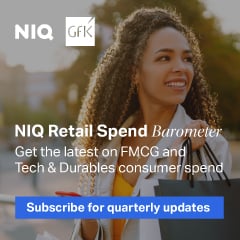How fintech partnerships are powering the future of e-commerce marketplaces
Derrick Lynagh, Head of Sales and Partnerships, Mangopay
There has been a significant shift from physical to e-commerce marketplace shopping over the past few years. In fact, global online marketplace sales reached USD $3.5 trillion in 2020 and are projected to reach $8.7 trillion by 2025. With the state of the economy putting pressure on businesses across the UK to drive sales and revenue, many are recognising the value of adopting an online marketplace model or enhancing their existing marketplace offering.
As marketplace popularity grows, the challenge is that it’s becoming increasingly difficult to remain competitive. Because of this, businesses are seeking ways to ensure their online marketplace stands out from others. A key differentiator in today’s market is the quality of the payment experience offered.
It’s not enough to simply recognise the importance of providing seamless marketplace payment experiences; businesses need to be actively seeking innovative solutions. Businesses will have different demands depending on their goals and whether their platform is B2B, B2C or C2C. This means providing an array of payment methods to suit all users’ needs is imperative. That said, creating a sophisticated payments environment with multiple payment options can be a complex task for marketplace platforms compared to traditional e-commerce sites, due to the specific needs of marketplaces and the multiple parties involved. Establishing strategic fintech partnerships can provide the solution to this challenge.
The benefits of fintech partnerships
First, by joining forces with a fintech such as Mangopay, marketplaces instantly have access to new technology, which is beneficial for both the company and its customers.
Our technology is modular and highly flexible, meaning partners can tailor the solution to their specific needs, including pay-in and payout, e-wallet, FX and anti-fraud. This typically means platforms can focus on other areas and know that payments are in good hands.
By their very nature, fintech companies are often more dynamic and better able to offer customer-focused solutions than traditional financial providers, as they tend to have smaller and more agile teams ready to work at a faster pace.
By considering these types of partnerships, businesses can improve their own user experience and increase customer satisfaction.
These partnerships can also bring increased flexibility and agility to operations. Fintechs are typically leaner than traditional financial institutions and can adapt quickly to changing market conditions. As such, businesses can use these partnerships to make their marketplaces more flexible and responsive to customer needs as well as risk. In addition, fintechs are often data-driven and use advanced analytics to understand customer behaviour and payment preferences. Online marketplaces can gain access to these analytics tools and use the insights to make better business decisions in this highly competitive climate.
Expanding to new markets
There are regulatory and legal differences between the UK and the EU that obviously cause some friction.
However, there is still potential for collaboration and those marketplace merchants that invest in the right methods will reap the rewards.
For example, by making international agreements with certain Payment Service Providers (PSPs), e-commerce marketplaces gain access to new markets and therefore new customers. A marketplace that partners with a fintech to provide digital payment solutions, for instance, can offer its products to customers across Europe with different preferences.
Ultimately, there are many benefits of partnering with a fintech, but the key advantage is improving customer and payment experiences, as this is what will help e-commerce marketplaces stay competitive and deliver growth. Marketplace businesses, and brands implementing marketplace offerings, should be able to offer customers the payment choices, convenience, and security they demand – dependable fintech partners can help do just that.














